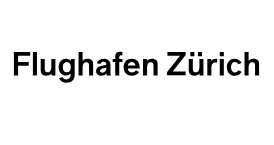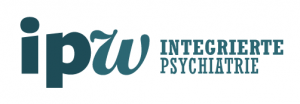The Laboratory for Intelligence in Design Engineering and Learning (IDEAL) in the Department of Mechanical and Process Engineering invites applications for a Post-doctoral position in the area of Machine Learning for Engineering Design under the guidance of Prof. Mark Fuge, the Chair of Artificial Intelligence in Engineering Design. The general area of the laboratory covers the study of Artificial Intelligence and Machine Learning in the context of Engineering Design problems in domains such as healthcare, power generation, aerospace, and robotics. The successful candidate will join a growing research team and have a unique professional development opportunity to help shape and guide initial investments in laboratory infrastructure.
Project backgroundThis postdoctoral position would build upon the laboratory's past and ongoing work within the context of AI-guided Design, Inverse Design, and Optimization across different application domains. In particular, we are developing scientific research infrastructure to better study benchmarking within this domain, as demonstrated via our recently published EngiBench and EngiOpt libraries. This position would involve helping set the vision and scientific direction for future efforts in this broad area, and collaborating with Ph.D. students, other Post-Docs, and Scientific Staff (such as software developers from ETH's Scientific IT Services group) to produce world-class and high-scientific-value research publications and infrastructure. As such, it offers unique and advanced professional development opportunities in both leadership and laboratory operations that will position the candidate well for future success as an independent scientist. You can read more about our work at our laboratory's current website .
Job descriptionAs a postdoctoral researcher, your responsibilities may include:
- Development or analysis of novel Machine Learning algorithms for engineering design applications, such as Inverse Design, Surrogate Modeling, or generative modeling.
- Collaborating with partners from industry, academia, and national labs to translate real-world needs into scientific or technical questions.
- Working independently or with other scientific staff to deploy our simulation or algorithm pipelines on advanced computational infrastructure, such as High-Performance Computing systems. As many of the lab members actively contribute together to various projects, this role will involve some project management and coordinating the development efforts of others.
- Helping to set up the specialized digital or physical scientific infrastructure needed to support planned experiments as relevant to your research focus. This also includes participating as an active lab citizen in improving lab-wide infrastructure via participation and planning for lab retreats or helping set up lab-wide processes.
- Participating actively in dissemination efforts such as publishing scientific papers, attending or presenting at conferences or workshops, or other scholarly outreach activities.
- Designing and writing portions of scientific research proposals to support laboratory efforts.
- Supervising Ph.D., Masters, and/or Bachelors students.
- Limited assistance in teaching efforts for relevant coursework in the laboratory's general area.
ProfileThe following are some characteristics that may align well with the position:
- You should be a highly motivated researcher with expertise in some of the following areas (please address these in the cover letter): Machine Learning, Computational Simulations (e.g., CFD, FEA, etc.), domain expertise in Engineering problems, familiarity with High-Performance Computing (HPC) environments, or Software Engineering.
- You are expected to have a Ph.D. degree in Mechanical Engineering, Computer Science, Applied Mathematics, Robotics, or related fields with an excellent track record in archival journal publications, Computer Science or Robotics conferences, or other competitive venues appropriate to your Ph.D. research field.
- You should possess strong English language skills and the ability to work successfully and collaboratively on diverse, multinational teams.
- Preferred candidates will also possess working knowledge of recent Machine Learning or HPC-related techniques or tooling, such as relevant Python or Julia libraries (PyTorch, JAX, and similar) and how to package simulation or ML codes for dissemination or deployment on distributed servers (e.g., Docker, Singularity, and running codes on HPC clusters). Knowledge of (or prior research) in robotics (e.g., ROS, forward/inverse kinematics), manufacturing (e.g., Additive or Subtractive Manufacturing), or computer vision/language models is a plus, but not a requirement.
- Preferred candidates will know professional software development practices, such as Code Quality measures, distributed development workflows (e.g., using Git/GitHub), such that you can lead a group with multiple contributors and maintain high levels of code quality.
- This position involves significant interpersonal and leadership opportunities that integrate with others in the ETH workplace, and ETH Zurich has developed a set of six core competencies that we expect from all employees. These include acting responsibly, nurturing well-being, driving innovation, living inclusivity, building bridges, and enabling people. In your cover letter, to the extent that you can speak to them as part of your past work, please note your key strengths in these competencies and examples that speak to them.
We encourage candidates to apply even if they do not think they possess every point above, particularly for candidates who may not have had access to certain development opportunities. We will work with any selected candidates to develop targeted competencies on a personalized basis.
We offerThe position is offered on a fixed-term basis with an anticipated duration of approximately two years, with an initial contract duration of one year, with a possibility of future extensions based on performance evaluation. The anticipated start date for the position is flexible, with an ideal start date between January to March of 2026. However, the exact date can be shifted forward or backward by several months upon mutual agreement to match the employment or graduation needs of the selected candidate. The position is designed as a full-time (100%) appointment, however, we can offer flexibility in both time and location (home office possibility from your residence in Switzerland) as needed to best enable an individual's needs and well-being. ETH Zurich is a family-friendly employer with excellent working conditions. In addition to this, you can look forward to:
- World-class research infrastructure and excellent working conditions guided by our common understanding of a supportive shared work culture .
- A high level of autonomy to develop your skills as an independent researcher.
- Opportunities to work with a diverse, motivated, and multi-cultural team in a creative research environment.
- Support for personalized professional development and mentoring with the ability to build a strong support network for your future career, and be part of a laboratory with a strong track record of placing post-doctoral employees into competitive research positions and professorships.
> Working, teaching and research at ETH Zurich
We value diversity and sustainability In line with our values , ETH Zurich encourages an inclusive culture. We promote equality of opportunity, value diversity and nurture a working and learning environment in which the rights and dignity of all our staff and students are respected. Visit our Equal Opportunities and Diversity website to find out how we ensure a fair and open environment that allows everyone to grow and flourish. Sustainability is a core value for us - we are consistently working towards a climate-neutral future .






